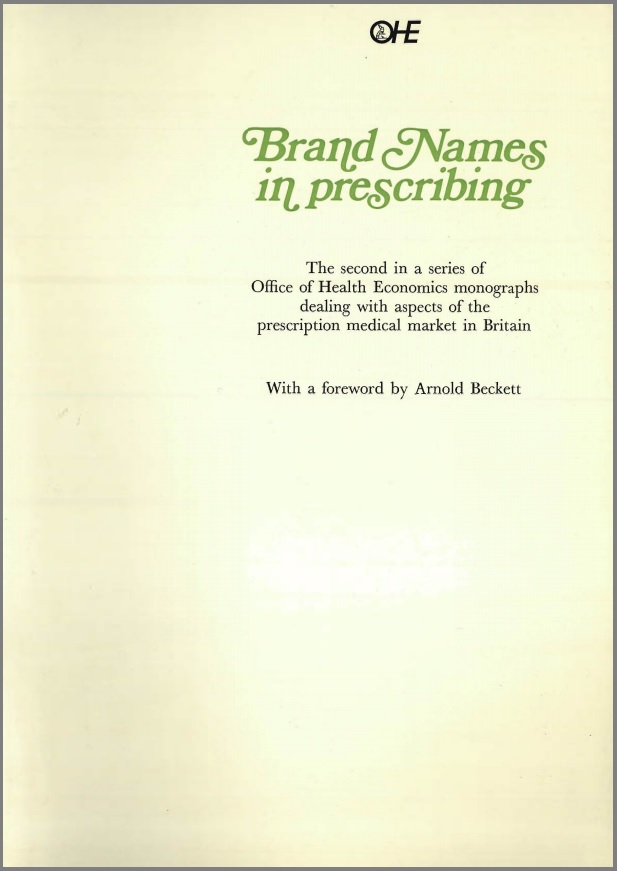Unlocking the Value of Combination Therapies

To present a balanced view of the brand name/generic controversy and the associated field of bioavailability. Many have discussed these problems; scientists, politicians, industrialists, legislators, hospital pharmacists, physicians, and clinical pharmacologists.
Some have contributed to these discussions because of vested interests, because of…
To present a balanced view of the brand name/generic controversy and the associated field of bioavailability. Many have discussed these problems; scientists, politicians, industrialists, legislators, hospital pharmacists, physicians, and clinical pharmacologists.
Some have contributed to these discussions because of vested interests, because of potential political advantage or because of prestige and pride. Sometimes much more heat than light has resulted from these controversies. Those sections of society mostly involved when different medicines containing the same drug are not equivalent, so that incorrect medication occurs, have not been able to make their voices heard for obvious reasons – they have not yet realised the problems which can occur when compliance with official standards does not guarantee in itself the quality of the medicine. Unfortunately, many physicians are not sufficiently aware that different medicines containing the same drug can give different effects and side effects in the same patient even if the characteristics of the patient are unchanged. Many of the problems for the patient are hidden from scrutiny behind the all-embracing term ‘inter-subject variation’. However, when some of the changed responses in individuals are examined after a particular drug has been prescribed, some of the dramatic effects have been shown to be due to the use of different medicines containing the same drug.
It is imperative in the interest of patients that any new medicines introduced to the market and purporting to be equivalent to existing ones should be established as being equivalent. Also, urgent attention must be given to examining many of the existing medicines in which bioavailability problems can be predicted from the nature of the drug or of the formulation.
Politicians who stress only comparative prices of pharmaceutical products to gain political advantage do so at their peril when they advocate a course of action which results in incorrect medication of sick people by substandard or non-equivalent products. Senior civil servants also cannot evade their responsibilities when they give advice to buy on the price of medicinal products without due attention to the relative quality of those products.
If patients understood fully some of the difficulties arising from the lack of therapeutic equivalence of medicines they would be exercising considerable pressure on politicians and on government departments. An analogy can be drawn to the use of domestic gas; if the pressure one week were correct and the next week were half this value, then the results would not be attributed to the variations in the domestic apparati but to the true reasons; the public response would be in no uncertain terms.
However, for medicines, the change in a patient’s response to a particular drug in a medicine is usually attributed to a change in the patient rather than to a change in the medicine producing a difference in the rate of release of the drug; frequently neither the patient nor the physician knows that a different medicine with different characteristics has been used.
Similar arguments apply to the side effects of drugs. If government departments only monitor adverse drug reactions using the name of the drug contained in different medicines, then they are misleading themselves and the physicians when they give advice based on this information.
The problems would disappear immediately if all medicines containing the same drug and all different batches of these medicines on the market were identical in clinical, biological and therapeutic activities. This is the ultimate goal, but it is many decades away; in the meantime this monograph is important in indicating the general background to the brand name/generic name problem.
Brand Names in Prescribing
